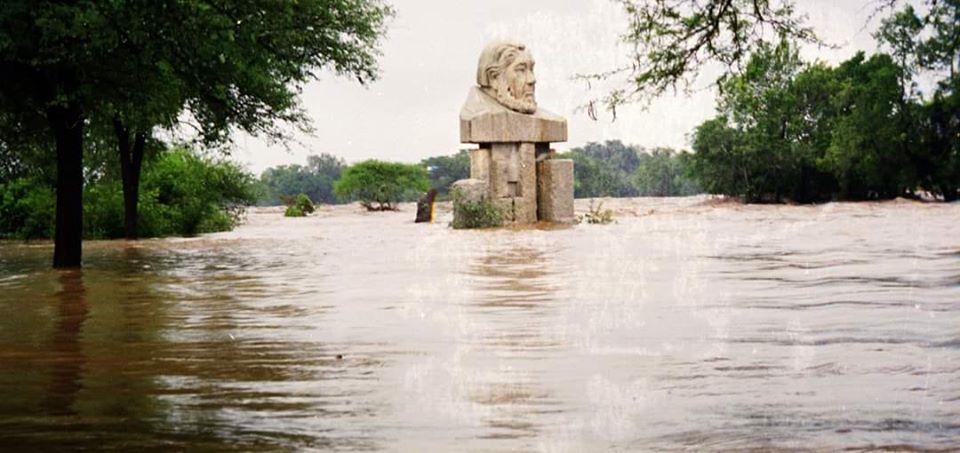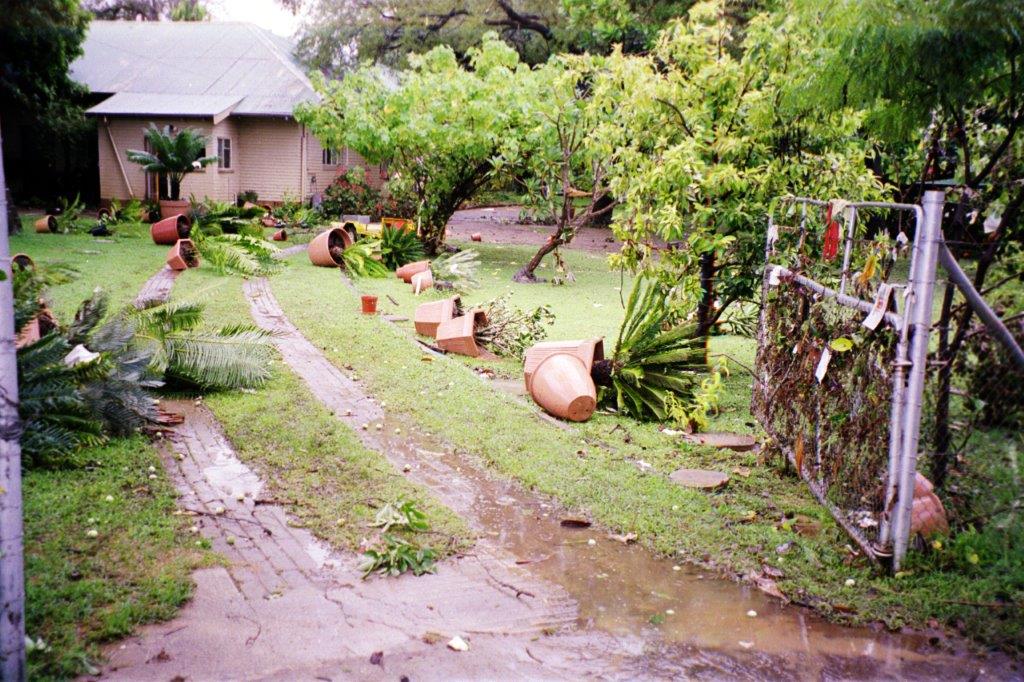2000 Floods
Posted: Fri Feb 07, 2020 6:10 pm
WATCH: Incredible footage of the devastating floods that hit the KNP 20 years ago
The 500 mm of rain recorded within 24 hours led to massive floods and destruction of property.
4 hours ago

The Kruger National Park experienced its worst floods on February 5, 2000, after the Sabie River and its tributary, Nwasitshaka, burst their banks. Skukuza bore the heaviest damage, estimated to be in the region of R8 million. In some places, more than 500mm of rain was recorded in a 24-hour period, leading to the closure of the entire southern half of the park, which had been cut off from the north.
https://youtu.be/DP3qoK2Aw40
The rest camps at Skukuza, Pretoriuskop, Lower Sabie and the Crocodile Bridge had to be closed to the public.
Park officials worked around the clock to limit the damage, which was estimated to run to more than R67 million.
Joep Stevens, general manager of revenue and yield at SANParks, was away on business in Johannesburg when the floodgates opened.
“At the time, I was living in Skukuza with a view of the river. On my return, I was confronted with water that had reached the top level of my window frames. The entire house was filled with water. I could not save anything, because I was not home when the floods started,” he said.
According to Stevens, the disaster was the worst the organisation had experienced. “Valuable infrastructure such as the water and purifying pumps were damaged inside and outside the park.”
He added that the situation was exacerbated by inadequate early warning systems, which he felt would have alerted officials sooner and allowed measures to be taken to minimise the damage.

“The southern Kruger National Park was closed, and a number of roads were severely damaged. I personally suffered a huge loss in terms of furniture and other goods, which were swept away.
“While these things can be replaced – some easier than others – I am thankful that there were no casualties in terms of human lives.”
Stevens added that the floods came and went quickly, but the destruction left in the wake was unimaginable. “It started at 17:00 on February 5, 2000 and wreaked havoc. It reached the camps, plucked out doors and windows, furniture and equipment and uprooted trees.
“Access roads were blocked and furniture was swept away, especially at the restaurant and homes along the river bank.”
Although no human lives were lost, many animals perished and salvage operations began in earnest. The Skukuza Primary School and the buildings on the left bank of Nwasitshaka River incurred extensive structural damage amounting to millions.
SA Assists victims across the border
https://lowvelder.co.za/524139/watch-in ... years-ago/
The 500 mm of rain recorded within 24 hours led to massive floods and destruction of property.
4 hours ago

The Kruger National Park experienced its worst floods on February 5, 2000, after the Sabie River and its tributary, Nwasitshaka, burst their banks. Skukuza bore the heaviest damage, estimated to be in the region of R8 million. In some places, more than 500mm of rain was recorded in a 24-hour period, leading to the closure of the entire southern half of the park, which had been cut off from the north.
https://youtu.be/DP3qoK2Aw40
The rest camps at Skukuza, Pretoriuskop, Lower Sabie and the Crocodile Bridge had to be closed to the public.
Park officials worked around the clock to limit the damage, which was estimated to run to more than R67 million.
Joep Stevens, general manager of revenue and yield at SANParks, was away on business in Johannesburg when the floodgates opened.
“At the time, I was living in Skukuza with a view of the river. On my return, I was confronted with water that had reached the top level of my window frames. The entire house was filled with water. I could not save anything, because I was not home when the floods started,” he said.
According to Stevens, the disaster was the worst the organisation had experienced. “Valuable infrastructure such as the water and purifying pumps were damaged inside and outside the park.”
He added that the situation was exacerbated by inadequate early warning systems, which he felt would have alerted officials sooner and allowed measures to be taken to minimise the damage.

“The southern Kruger National Park was closed, and a number of roads were severely damaged. I personally suffered a huge loss in terms of furniture and other goods, which were swept away.
“While these things can be replaced – some easier than others – I am thankful that there were no casualties in terms of human lives.”
Stevens added that the floods came and went quickly, but the destruction left in the wake was unimaginable. “It started at 17:00 on February 5, 2000 and wreaked havoc. It reached the camps, plucked out doors and windows, furniture and equipment and uprooted trees.
“Access roads were blocked and furniture was swept away, especially at the restaurant and homes along the river bank.”
Although no human lives were lost, many animals perished and salvage operations began in earnest. The Skukuza Primary School and the buildings on the left bank of Nwasitshaka River incurred extensive structural damage amounting to millions.
SA Assists victims across the border
https://lowvelder.co.za/524139/watch-in ... years-ago/